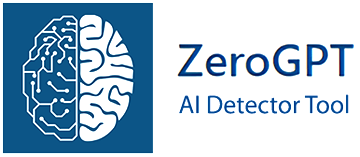HEALTH LOCUS OF CONTROL DAN SELF-EFFICACY PASIEN DM TIPE 2 DENGAN PENERAPAN MODIFIKASI PSIKOEDUKASI
DOI:
https://doi.org/10.34012/jukep.v4i1.1368Keywords:
health locus of control, self-efficacy, diabetes mellitusAbstract
It is feared that the high prevalence of DM will increase the risk of comorbidities as a result of complications of this disease. Complications that occur in DM in Indonesia include neuropathy complications in 60%, coronary heart disease at 20.5%, diabetic ulcers at 15%, retinopathy at 10%, and nephropathy at 7.1%. The study aims to treat diabetes mellitus patients with a lifelong disease that must be well managed and compliant to avoid complications that worsen the patient's condition. The type of research used in this study is quasi-experimental research. This research design using a pretest-posttest control group design. The population was in this study were elderly people suffering from Type 2 Diabetes Mellitus. From the data of the Puskesmas, the sample was taken using a systematic random sampling method. It was found that 35 respondents were in the working area of Puskesmas Sentosa Baru. Psychoeducation was given for 3 weeks and every week a random blood glucose level was checked. The results of this study are the influence of the application of psychoeducation on self-efficacy in Type 2 DM patients in the work area of the Puskesmas Sentosa Baru (p=0,000). This study concludes that there is an effect of the application of psychoeducation on self-efficacy in type 2 DM patients in the work area of the Puskesmas Sentosa Baru.
Downloads
Published
How to Cite
Issue
Section
License
Authors who publish their manuscripts through the Journal of Keperawatan Priority agree to the following:
- Copyright to the manuscripts of scientific papers in this Journal is held by the author.
- The author surrenders the rights when first publishing the manuscript of his scientific work and simultaneously the author grants permission / license by referring to the Creative Commons Attribution 4.0 International License to other parties to distribute his scientific work while still giving credit to the author and the Journal of Journal Keperawatan Priority as the first publication medium for the work.
- Matters relating to the non-exclusivity of the distribution of the Journal that publishes the author's scientific work can be agreed separately (for example: requests to place the work in the library of an institution or publish it as a book) with the author as one of the parties to the agreement and with credit to sJournal ofJournal Keperawatan Priority as the first publication medium for the work in question.
- Authors can and are expected to publish their work online (e.g. in a Repository or on their Organization's/Institution's website) before and during the manuscript submission process, as such efforts can increase citation exchange earlier and with a wider scope.


















